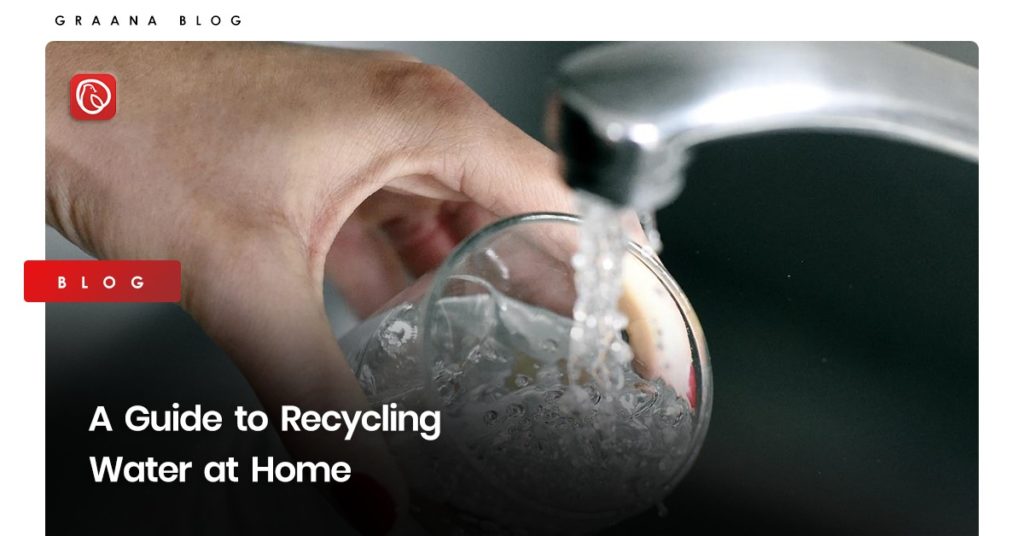Water is a vital resource that is essential for life, but it is also a limited resource that needs to be conserved. Recycling water at home can help reduce water usage as well as the burden on wastewater treatment facilities.
Graana.com explores the different ways you can recycle water at home, including collecting rainwater, reusing greywater, and installing greywater or blackwater treatment systems.
We will also discuss the regulations and guidelines that may be involved in recycling water at home. Whether you are looking to use water more responsibly or just want to be more environmentally conscious, recycling water at home is a great way to make a difference.
How to Recycle Water at Home
Here are some ways you can conserve water at home:
- Collect rainwater
- Reuse greywater
- Use a greywater system
- Recycle blackwater
It’s important to note that recycling water at home can be complex and may be subject to local regulations and building codes. It’s always a good idea to conduct research on related laws and guidelines in your area before embarking on any water recycling project.
Collect Rainwater
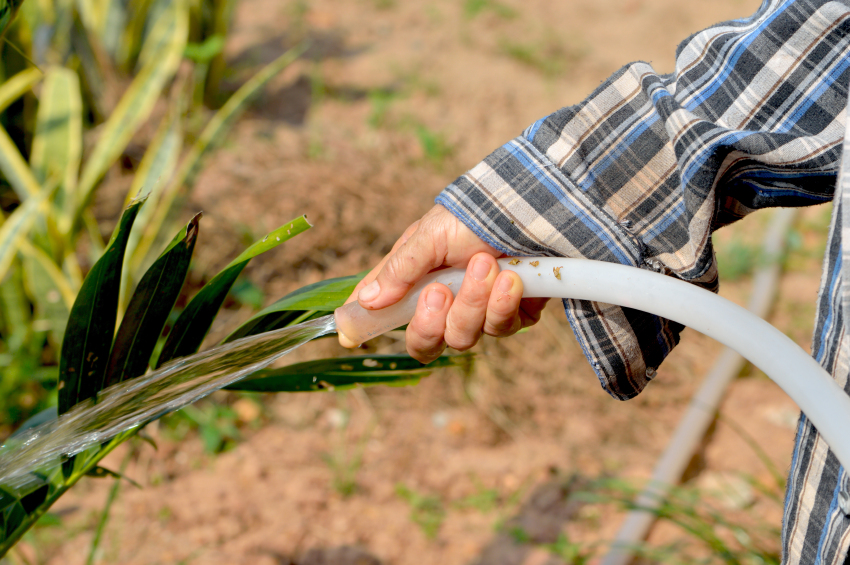
Collecting rainwater is a simple and effective way to reduce your reliance on treated, municipal water. Here are a few tips for collecting and using rainwater at home:
Choose an appropriate location
The best location for a rainwater collection system will depend on your specific needs and the layout of your property. Consider factors such as the size of the catchment area (e.g., roof, patio etc.), the slope of the land, and distance from the intended use of the water.
Install a storage system
There are many different types of storage systems available for rainwater collection, ranging from simple barrels to more complex tanks. Choose a system that is appropriate for your needs and the size of your catchment area.
Treat the water
Rainwater can contain contaminants such as dust, bird droppings, and other pollutants that may be harmful if ingested. It is important to treat the water before using it for non-potable purposes such as irrigation. There are a variety of treatment options available, including filtration, UV disinfection, and chemical treatment.
Use the water wisely
Once you have collected and treated the rainwater, be sure to use it more mindfully.
By following these guidelines, you can effectively collect and recycle rainwater at home to help conserve water and reduce your water bills.
Reuse Grey Water
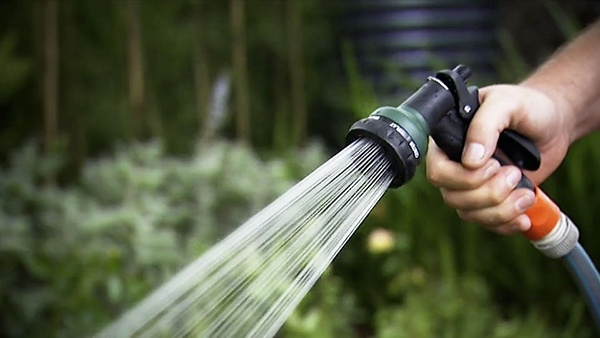
Reusing grey water is another effective way to recycle water at home. Grey water is gently-used household water that is generated from sources such as showers, sinks, and washing machines.
It does not include water from toilets or kitchen sinks, as it may contain contaminants such as food particles or faeces that could pose a risk to human health.
Here are a few tips for reusing grey water at home:
Determine the suitability of your grey water
Not all grey water is suitable for reuse. It is important to consider the quality of the water and its intended use before recycling it. For example, water from a washing machine may be suitable for irrigation, but water from a shower may not be due to the presence of soap and other chemicals.
Install a greywater recycling system
There are many different types of greywater recycling systems available, ranging from simple buckets and diverter valves to more complex systems that filter and treat the water. Choose a system that is appropriate for your needs and the quality of your grey water.
Follow proper handling and use guidelines
It is important to follow proper guidelines when using grey water to ensure that it is used safely and effectively. This may include avoiding direct contact with the water, using it within a certain time frame after it is generated, and not using it for certain types of plants.
Use a Greywater System
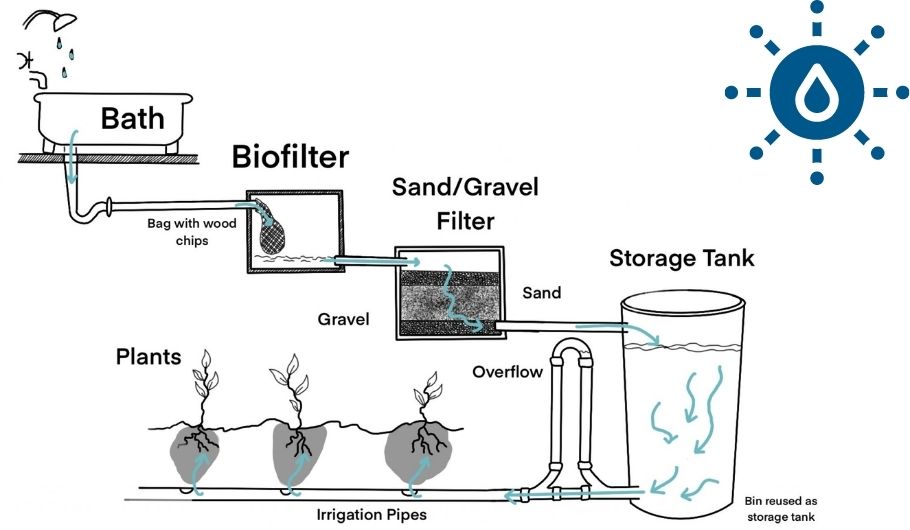
Greywater is the wastewater generated from household activities such as washing dishes, doing laundry, and showering. It is called greywater because it is not as dirty as blackwater, which is wastewater generated from toilet use.
One of the main benefits of using a greywater system is that it can significantly reduce water usage. By reusing greywater for irrigation and other non-potable purposes, you can conserve a significant amount of water that would otherwise be lost down the drain.
There are several different types of greywater systems, ranging from simple manual systems to more complex automated systems. Some systems are designed to reuse greywater for irrigation only, while others can be used for flushing toilets and other indoor purposes.
To use this in your home, you will need to install a greywater collection and filtration system. This can be as simple as a bucket under your shower drain, or as complex as a series of pipes and filters. Once the greywater has been collected and filtered, you can use it for irrigation or other non-potable purposes.
Installing a greywater system can be a DIY project, or you can hire a professional to install it for you. Either way, it is important to follow local regulations and guidelines during installation to ensure that it is safe and effective.
Recycle Blackwater
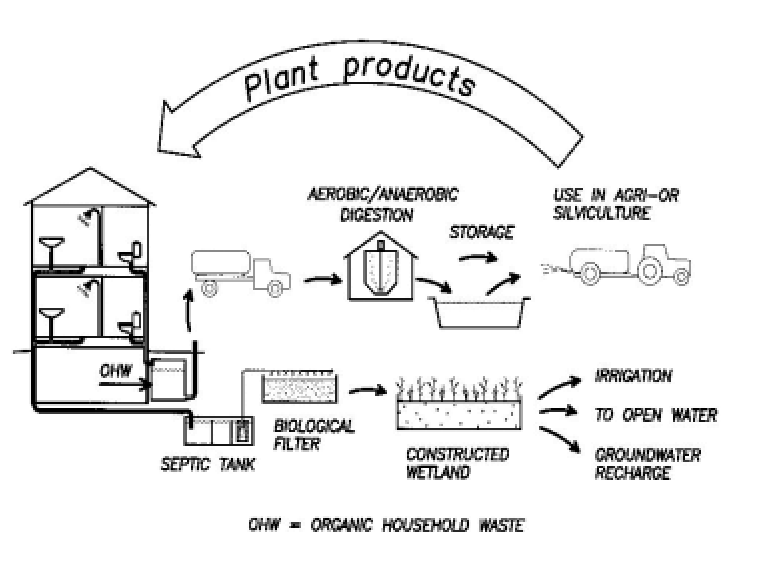
Recycling blackwater, or wastewater generated from toilet use, can be a valuable way to recycle water in your home and reduce your usage. While recycling blackwater can be more complex than greywater, it is still a valuable resource that you can safely reuse for non-potable purposes with proper treatment and management.
One method of recycling blackwater at home is through the use of a composting toilet. These types of toilets use natural processes to break down the organic matter in the wastewater, producing a nutrient-rich compost that can be used for gardening or landscaping.
Composting toilets are often used in off-grid or remote locations where traditional sewage systems are not available.
Another method of recycling blackwater at home is through the use of a septic system. This is a small-scale wastewater treatment system that is commonly used in rural or suburban areas. It consists of a septic tank and a leach field, where the wastewater is treated and filtered through the soil before being released back into the environment.
It is important to note that recycling blackwater can be a complex and potentially risky process. Moreover, it is essential to follow proper treatment and management practices to ensure that the water is safe and free of harmful pathogens. It is also important to check local regulations and guidelines before installing a blackwater recycling system.
Securities and Guidelines for Collecting Water at Home
There are several regulations and guidelines that may be involved in recycling water at home. These may vary depending on where you live, as different countries and regions may have different rules and regulations governing water reuse and recycling. Here are a few examples:
Water quality standards
Recycled water must meet specific water quality standards in order to be used for different purposes. These standards are often set by local or national agencies and may vary depending on the intended use of the water (e.g. irrigation, toilets, etc.).
Building codes
Some local building codes may have specific requirements related to water recycling systems, such as the type of system that can be installed and where it can be located. It is important to check with your local building department to ensure that you are in compliance with any applicable codes.
Environmental regulations
There may be environmental regulations in place that govern the use of recycled water, such as regulations related to discharging treated water into the environment. Hence, be sure to check with your local environmental agency to confirm that you are in compliance with any applicable regulations.
Health and safety guidelines
There are also health and safety guidelines that may be relevant to water recycling at home. For example, it is important to ensure that the water is adequately treated to remove any contaminants that could be harmful otherwise.
It is always a good idea to check with your local authorities and follow any applicable regulations and guidelines when recycling water at home.
For more related information, visit Graana Blog.
